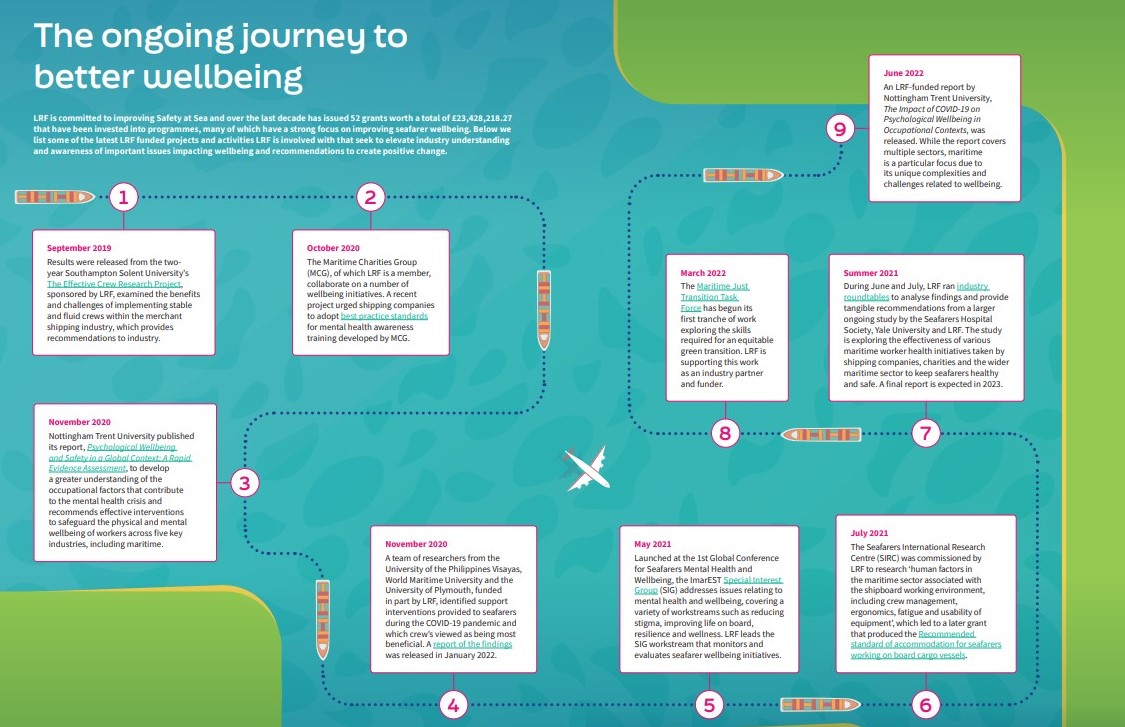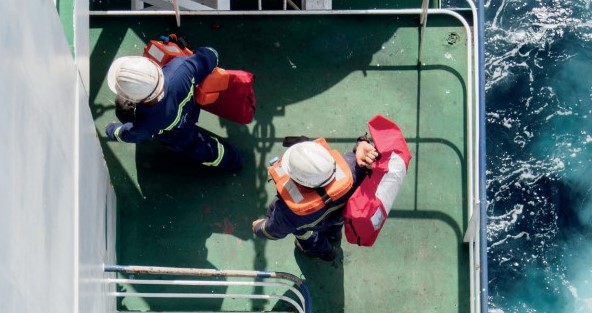To mark this year’s IMO Day of the Seafarer on 25 June, Lloyd’s Register and Lloyd’s Register Foundation have launched a new report ‘Shining a light on seafarer wellbeing’.
The report highlights the link between wellbeing and safety and stresses the need for structural support for seafarers, improved assessment of mental wellbeing and looks at which interventions have been most welcomed by seafarers.
[smlsubform prepend=”GET THE SAFETY4SEA IN YOUR INBOX!” showname=false emailtxt=”” emailholder=”Enter your email address” showsubmit=true submittxt=”Submit” jsthanks=false thankyou=”Thank you for subscribing to our mailing list”]
It also calls for more research and development to better assess and protect seafarer wellbeing, including the use of innovative technologies as supportive tools. In fact, it suggests that maritime employers should recognise the value of retaining practical changes first implemented amid COVID-19 to make long lasting, structural improvements to seafarer wellbeing.
Seafarers cannot be expected to operate vessels safely without an environment that fosters good psychological wellbeing and mental health. We’re seeing some good examples of progress within the industry towards a more supportive and human-centric working environment for seafarers – but there is still a long way to go
Lloyd’s Register’s Chief Marketing Officer Philippa Charlton stressed.

In addition, Senior Programme Officer at Lloyd’s Register Foundation Olivia Swift, explained that “onboard working conditions for seafarers can be optimised to be more supportive of wellbeing through changes to vessel design, contracts and scheduling.”
For this reason, “measures to address wellbeing introduced during COVID-19, such as greater connectivity and ability to communicate regularly with loved ones, should be adopted long-term,” Ms. Swift added.
Steps to improve seafarer wellbeing
#1 Implement mental health interventions: Researchers found that holistic and sustained interventions are most effective and should be tailored to the specific
relationships between structural and psychosocial factors on board.
#2 Fight fatigue: Seafarers’ shift patterns, contract lengths, the physical nature of their work and poor living conditions on board can all lead to fatigue and have adverse effects on crew’s physical and mental wellbeing. Companies can introduce successful interventions that include reduction of work overloads by simplifying procedures and increasing crewing levels; improved focus on scheduling and task demands; better monitoring of fatigue levels and reviewing periods of maximum continuous service at sea.
#3 Improve on board accommodation: In July 2021 a report from the Seafarers International Research Centre (SIRC), commissioned by the LRF, surveyed 3,000 seafarers and made 35 follow up visits to vessels to uncover issues with onboard accommodation that can adversely affect wellbeing and mental health. From those findings researchers recommended maritime employers focus on the following improvements on board:
- Air conditioning on all ships;
- Better lighting in cabins;
- Storage space including wardrobes, bedside cabinets and cupboard units;
- Better protection against noise and vibration.
#4 Explore technological solutions: Digital technology, from telemedicine and online mental health awareness training, to Internet of Things sensors that monitor seafarer fatigue, can all work to help improve our knowledge and understanding of the issues seafarers face. They can also provide greater tools and support for crews with limited access to onshore medical and mental health care.
#5 Continue to improve seafarer rights: As shipping moves forward on its decarbonisation journey, it is vital that industry continue to lobby governments and work with the IMO and other UN agencies to ensure seafarers rights are upheld and protect seafarer wellbeing. This includes work being done with the Maritime Just Transition Task Force.































































